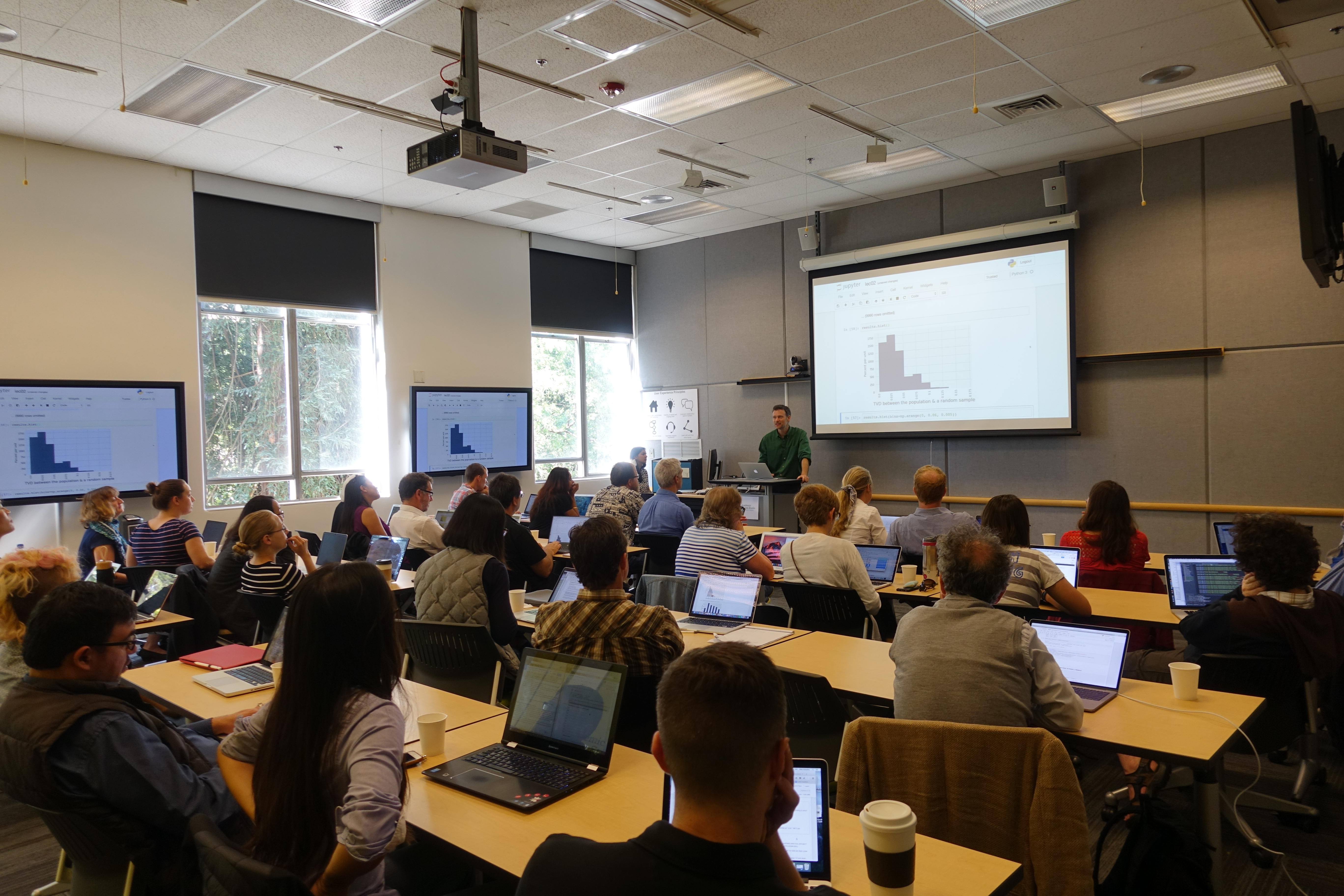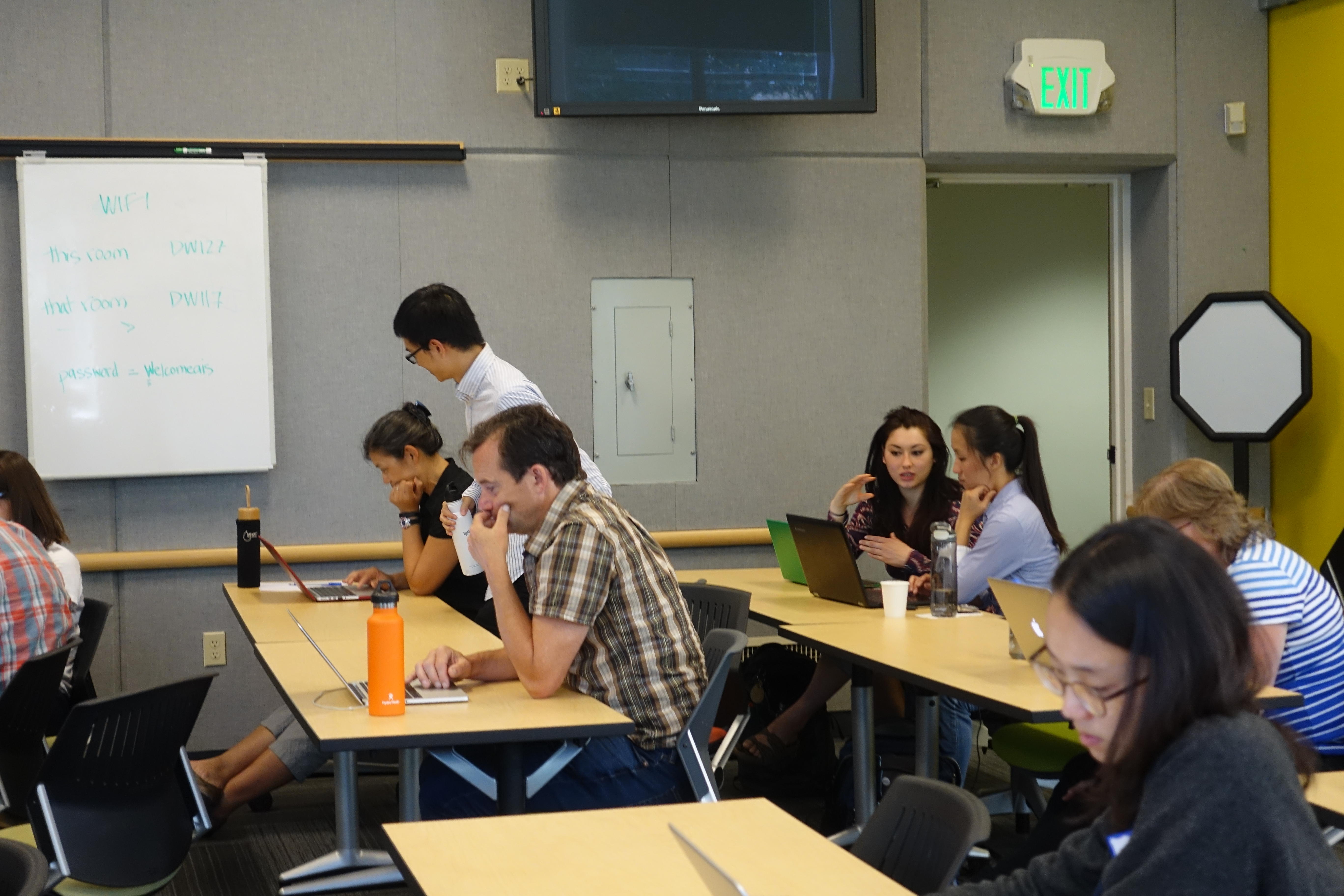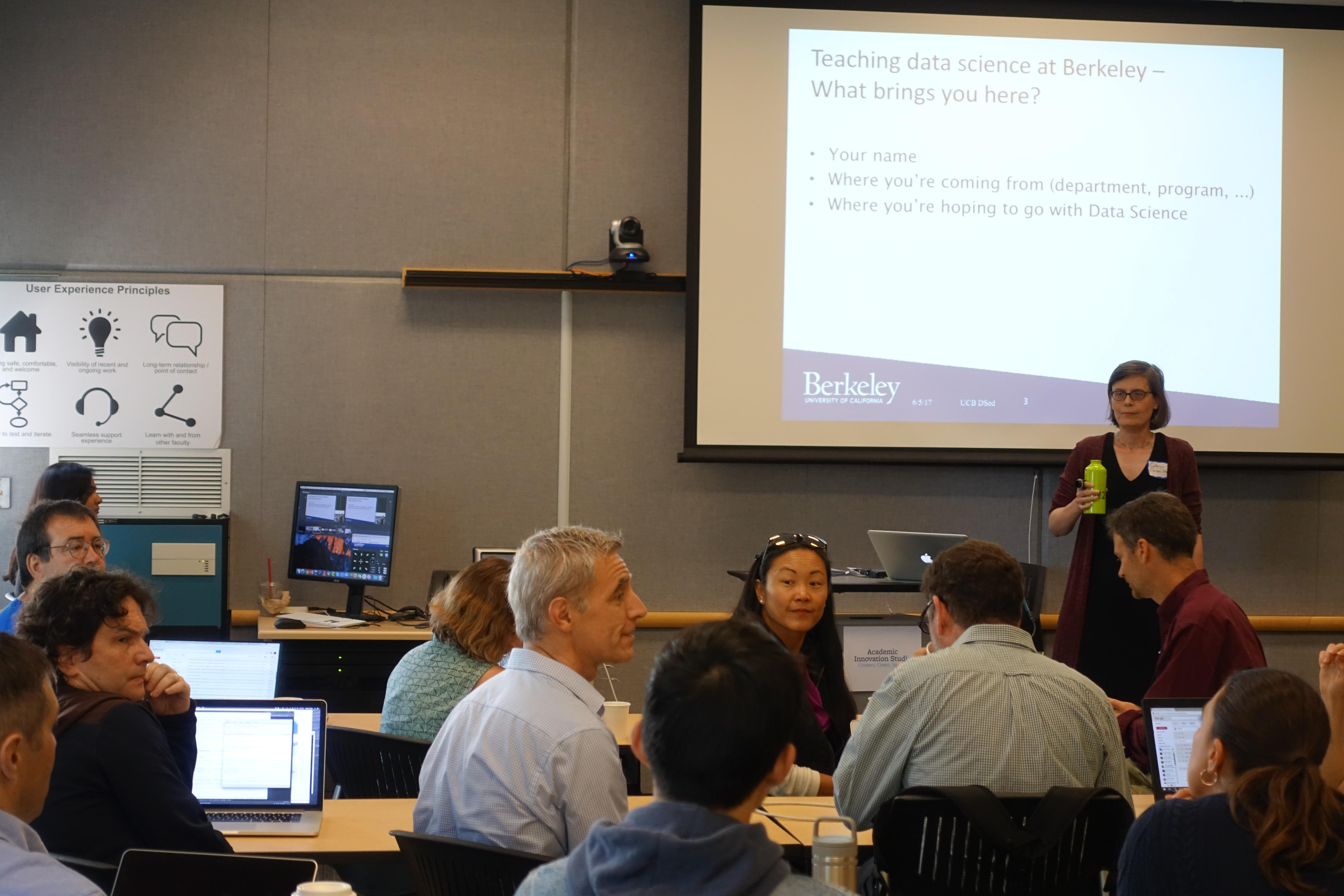
In June, more than 30 faculty and instructors across a range of disciplines – from English to Sociology to Neuroscience to Physics – took a week out of their summer to explore how to incorporate tools developed for data science into their own teaching.
The faculty members attended the intensive week-long Data Science Pedagogy & Practice workshop hosted in early June by the Data Science Education Program. Held at the Academic Innovation Studio in Dwinelle Hall, this second offering of the summer course for faculty was the next step in building out Berkeley’s ecosystem of interdisciplinary courses in the data science field and departments across campus. Its goal was to make it possible to offer more such courses in the future and tailor existing courses to draw upon the already existing Foundations of Data Science (Data 8) course, which is taken by more than a thousand students each year.

Described by a previous participant as a “master class” in teaching data science to undergraduates, the workshop was taught by Computer Science Professor David Wagner, who this fall will be teaching Foundations of Data Science, Berkeley’s pathbreaking course for students of all majors. The Foundations course combines instruction in core concepts in computing and statistical inference with confidence-building experience in obtaining and analyzing real data using computational techniques found throughout the academy, industry, and government.
Participants explored teaching methodologies for Berkeley’s data science education program, learned about its computational approach to thinking statistically, and got hands-on experience programming in Python using the Jupyter notebook programming environment. In afternoon lab sessions, faculty had the chance to experiment with exercises from the Data 8 course that covered a broad set of examples, from fair jury selection to privacy issues in tracking license plates from parking ticket data. They then got individualized support from teams of data science students to start designing materials to use in their own teaching.

Participants shared their reactions in the workshop’s follow-up survey:
“Very inspiring to see what students in Data 8 are doing and how the course is taught.”
“I found the philosophy behind the curriculum remarkable. The ease by which students even without previous learning or experience are able to get immersed in the course is both surprising and fascinating.”
“The topics of discussion were incredibly relevant and offered great examples of how to integrate discussions of technology, privacy, security, etc., into my own course.”
“This workshop provided a great example in effectively incorporating a programming tool (whether is Jupyter notebook or R.studio) in conjunction to teaching the core concepts in a more specific field of knowledge. It was a great learning experience that clarified principles to help set up a data-analysis driven course.”
The workshop also included a student panel, in which a group of undergraduate data science students shared their perspectives on Berkeley’s data science offerings and answered questions from faculty. A separate panel featured Berkeley instructors who have previously taught connector courses and developed course modules. Attendees chimed in with their own experiences and insights about data science pedagogy.
For additional questions, please send an email to dspi@berkeley.edu
